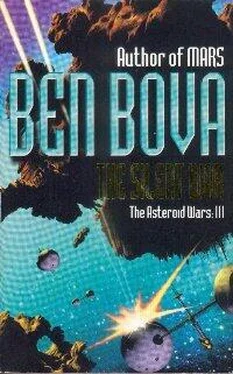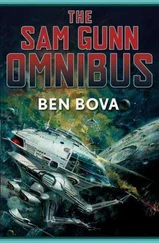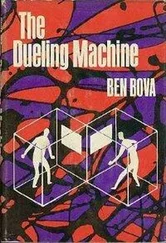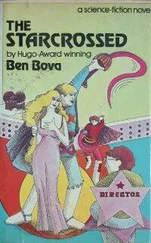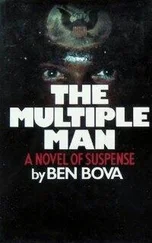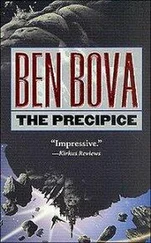The room’s decor was set to the Mediterranean isle of Capri: steep, green-clad cliffs studded with little white-walled villages clinging here and there, and the placid sea glittering beneath a warm Sun.
Wanamaker asked for a bourbon and water. Pancho had the auto-bar pour her an ice-cold lemoncello, to go with the scenery.
She gestured him to a comfortably wide armchair, and perched herself on the smaller upholstered chair next to it. They clinked glasses. Pancho noticed that Jake took a healthy swig of his bourbon, rather than a polite little sip.
“What’s on your mind?” Pancho asked.
He gave her a sheepish grin. “Looks like I’m out of a job.”
“Guess so,” she said. “Your contract runs to the end of the year, though.”
“I don’t feel right taking money for doing nothing.”
Pancho considered this for a moment, then heard herself say, “So why don’t you come with me? Be my bodyguard.”
His brows shot up. “Bodyguard? Where are you going?”
With a shrug, she admitted, “Dunno. Just want to get away from all this. I’m going to resign from Astro Corporation.”
“Resign?” “Yep. I sorta fell into this job by accident. Took me a lotta years to realize I don’t really want to be a corporate executive.”
“So you’re going to travel?”
“For a bit. My sister’s out at the Saturn habitat. Thought maybe I’d have a look-see out there.”
“You don’t need a bodyguard for that,” Wanamaker said.
Pancho grinned at him. “Okay then, I’ll be your bodyguard. How’s that?”
Realization dawned on Wanamaker’s face. He broke into a wide grin.
Shanidar was in orbit around Vesta. There was a delay getting the crew transferred down to the base because most of the surface facilities had been eaten away by the nanomachine attack. Just as well, Harbin thought. He was in no hurry to leave the ship.
He had remained in his quarters, as ordered by the executive officer. He had not slept for several days. Without his medications, sleep brought dreams, and Harbin did not like what his dreams showed him.
He replayed the news broadcasts of his attack on Chrysalis over and over. Each time it seemed worse to him, more horrifying, more damning.
What does life hold for me now? he asked himself. They’ll send out some troops to arrest me. Then a trial, probably back on Earth. And then what? A firing squad? More likely a lethal injection. Or perhaps life in prison.
I can save them the trouble, he thought.
His mind resolved, Harbin slid open the pleated door to the passageway and headed toward the rear of the ship, away from the bridge. I’ve got to do this quickly, he knew, before they realize I’ve left my quarters.
He went straight to the weapons locker, unattended now that the ship was in orbit and the crew waiting to transfer to their base. The grenade storage bins were locked, but Harbin knew all the combinations. He tapped out the proper sequence and the lock clicked open. A small one, he told himself. You don’t want to damage the ship too much.
A minigrenade, hardly larger than his thumbnail. Enough explosive in it, however, to blast open an airlock hatch. Or something else.
“Hey, what’re you doing?”
Harbin whirled to see one of his crewmen coming down the passageway.
“Oh, it’s you, Captain.” The man looked suddenly embarrassed. “Sir, eh—you’re supposed to be confined to your quarters.”
“It’s all right, trooper,” Harbin said reassuringly. “Nothing to worry about. For all the Sin wherewith the Face of Man is blackened…”
“Sir?” the crewman asked, puzzled. Then he saw the minigrenade in Harbin’s hand. His eyes went wide.
“Nothing,” Harbin muttered. He flicked the grenade’s fuse with his thumbnail as he spun around to place his body between the crewman and the blast. The explosion nearly tore him in half.
“What do you mean, Dorn’s not available?” Humphries shouted at the blank phone screen. “Get me the officer on watch aboard the Humphries Eagle.”
“All exterior communications are inoperable at the present time,” replied the phone.
“That’s impossible!” “All exterior communications are inoperable at the present time,” the phone repeated, unperturbed.
Humphries stared at the empty screen, then turned slowly toward Elverda Apacheta. “He’s cut us off. We’re trapped in here.”
Elverda felt the chill of cold metal clutching at her. Perhaps Dorn is a madman, she thought. Perhaps he is my death, personified.
“We’ve got to do something!” Humphries nearly shouted.
Elverda rose shakily to her feet. “There is nothing that we can do, for the moment. I am going to my quarters and take a nap. I believe that Dorn, or Harbin or whatever his identity is, will call on us when he is ready to.”
“And do what?”
“Show us the artifact,” she replied, silently adding, I hope.
Legally, the artifact and the entire asteroid belonged to Humphries Space Systems. It had been discovered by a family—husband, wife, and two sons, ages five and three—that made a living from searching out iron-nickel asteroids and selling the mining rights to the big corporations. They filed their claim to this unnamed asteroid, together with a preliminary description of its ten-kilometer-wide shape, its orbit within the asteroid belt, and a sample analysis of its surface composition.
Six hours after their original transmission reached the commodities market computer network on Earth—while a fairly spirited bidding was going on among four major corporations for the asteroid’s mineral rights — a new message arrived at the headquarters of the International Astronautical Authority, in London. The message was garbled, fragmentary, obviously made in great haste and at fever excitement. There was an artifact of some sort in a cavern deep inside the asteroid.
One of the faceless bureaucrats buried deep within the IAA’s multi-layered organization sent an immediate message to an employee of Humphries Space Systems. The bureaucrat retired hours later, richer than he had any right to expect, while Martin Humphries personally contacted the prospectors and bought the asteroid outright for enough money to end their prospecting days forever. By the time the decision-makers in the IAA realized that an alien artifact had been discovered they were faced with a fait accompli: the artifact, and the asteroid in which it resided, were the personal property of the richest man in the solar system.
Martin Humphries was something of an egomaniac. But he was no fool. Graciously he allowed the IAA to organize a team of scientists who would inspect this first specimen of alien intelligence. Even more graciously, Humphries offered to ferry the scientific investigators all the long way to the asteroid at his own expense. He made only one demand, and the IAA could hardly refuse him. He insisted that he see this artifact himself before the scientists were allowed to view it.
And he brought along the solar system’s most honored and famous artist To appraise the artifact’s worth as an art object, he claimed. To determine how much he could deduct from his corporate taxes by donating the thing to the IAA, said his enemies. But over the days of their voyage to the asteroid, Elverda came to the conclusion that buried deep beneath his ruthless business persona was an eager little boy who was tremendously excited at having found a new toy. A toy he intended to possess for himself. An art object, created by alien hands.
For an art object was what the artifact seemed to be. The family of prospectors continued to send back vague, almost irrational reports of what the artifact looked like. The reports were worthless. No two descriptions matched. If the man and woman were to be believed, the artifact did nothing but sit in the middle of a rough-hewn cavern. But they described it differently with every report they sent. It glowed with light. It was darker than deep space. It was a statue of some sort. It was formless. It overwhelmed the senses. It was small enough almost to pick up in one hand. It made the children laugh happily. It frightened their parents. When they tried to photograph it, their transmissions showed nothing but blank screens. Totally blank.
Читать дальше
